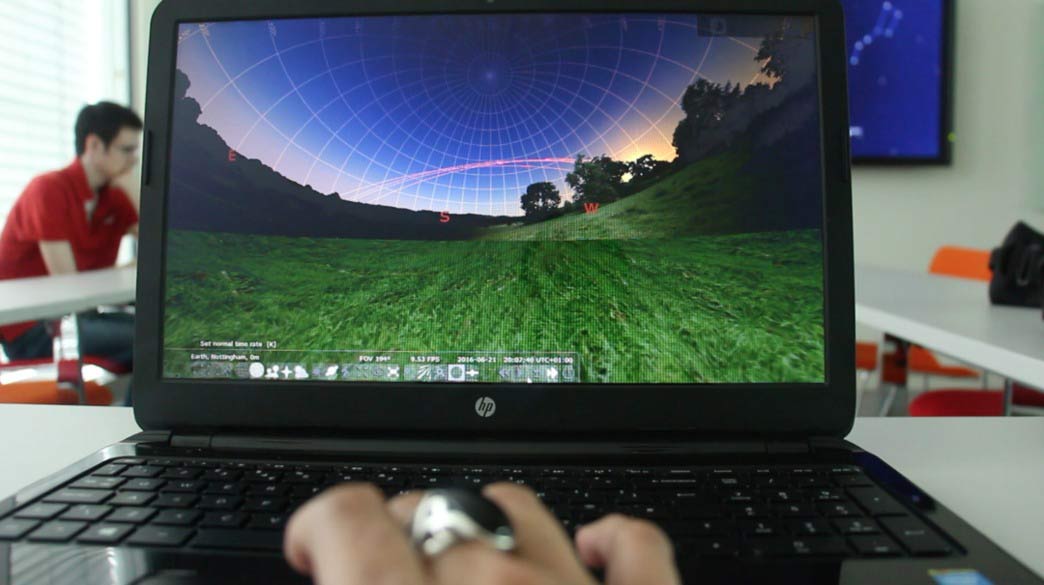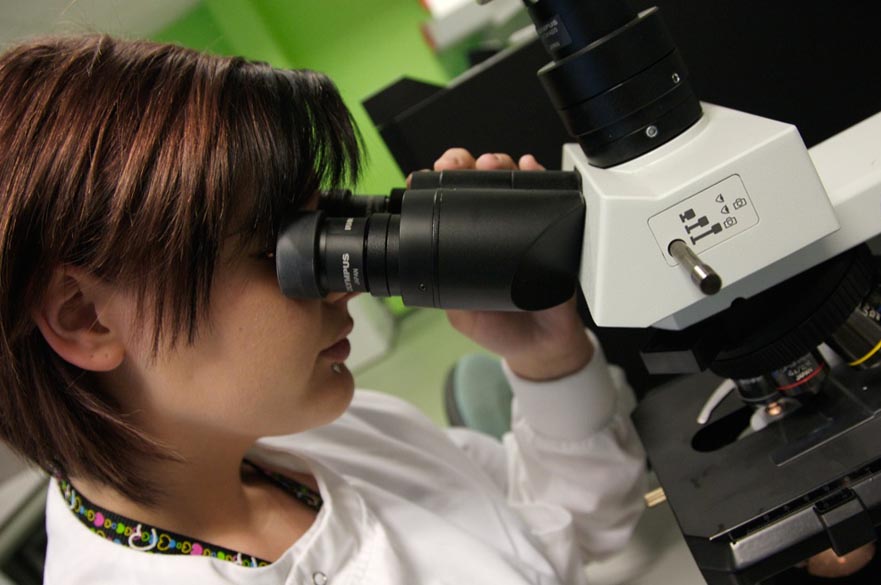Mathematical Sciences MRes
About this course
This Mathematical Sciences Masters course will prepare you for the challenges of research in mathematics or statistics. Supported by relevant taught models and by academic supervisors, experts in your chosen specialist subject, you will undertake a year-long research project in which you will experience all stages of the research process.
You'll thrive as you study with our experienced and award-winning academic team.
You will gain deep knowledge of a chosen topic in mathematics or statistics and develop your research skills in project planning, reviewing literature, group discussions, research presentations and writing publications.
You will take two core taught modules each providing you with the underpinning theory to support your research work. You will then choose two optional modules from three pathways: statistics, applied mathematics and pure mathematics.
This course benefits from the excellent facilities and equipment available in the School of Science and Technology.
What you’ll study
You will undertake a year-long research project, one compulsory module and then choose any two 20cp modules from the options below. You can choose modules which relate to your chosen research project or broaden your mathematical skills with modules in other areas of mathematics.
Core modules
Research Project (120 cp)
A full-time extended (9-10 months) research project in a chosen theme within Mathematical Sciences.
You can undertake projects in any area of mathematics that lies within the specialism of our research staff in the department, such as:
- Mathematical modelling
- Analysis of PDEs
- Mathematical biology
- Combinatorics and topology
- Graph theory and combinatorics
- Quantum computation
- Machine learning
- Computational statistics
- Financial mathematics (derivative pricing)
Science Communication (20 cp)
Discover science communication in the digital age. Develop your communication of complex topics and controversial issues, for both specialist and non-specialist audiences. You’ll get to practice your new communication skills in a setting similar to a workplace e.g. as a volunteer at a local outreach organisation or in a lab setting.
Optional modules (Choose one from each set)
Set 1:
Mathematical Recipes (20 cp)
An introduction to six important theoretical mathematical methods and their wide-ranging applications, primarily in physics and engineering
Computational Statistics and Data Analysis (20 cp)
Explore topics from computational statistics and statistical models that are relevant to modern applications with an emphasis on developing a solid conceptual understanding of these methods through applications
Set 2:
Topics in Mathematical Biology (20 cp)
Examine the use of differential equations and their application to biological systems. Network models for a range of biological processes, including models of drug delivery, tumour growth and multicellular systems
Quantum Computing and Cryptography (20 cp)
Introduces you to the theory of error-correcting codes and cryptography in facilitating the reliable, efficient and secure communication of information.
We regularly review and update our course content based on student and employer feedback, ensuring that all of our courses remain current and relevant. This may result in changes to module content or module availability in future years.
Don’t just take our word for it, hear from our students themselves
Video Gallery
How you're taught
In the first two terms you will study your taught modules, in which you will develop your research skills through group work and assignments, and learn cutting-edge mathematics in small-group lectures and seminars. Right from the start, alongside the taught material, you will begin work on your master’s level project, with regular structured meetings with your supervisory team.
Over the summer you will be able to really focus on your project and apply what you have learnt to a specific problem. You will learn through:
- lectures
- seminars
- case studies
- presentations
- discussions
- group and individual work.
Learn a new language
Alongside your study you also have the opportunity to learn a new language. The University Language Programme (ULP) is available to all students and gives you the option of learning a totally new language or improving the skills you already have. Find out more about the ULP.
How you're assessed
Coursework (69%) and written (31%)
Contact hours
Lectures/seminars/workshops (20%) and independent study (80%)
Careers and employability
This Mathematics postgraduate degree provides an excellent platform to apply for a PhD in Mathematics or Statistics. Your research skills mean you will really be able to hit the ground running.
If you are looking for a career in industry, the skills you have acquired on the course – independence, logical reasoning, project planning, intellectual discussions – will mean you are highly employable in industries such as finance, IT, business, teaching and consultancy. Here are some of the roles our recent graduates have gone on to:
- PhD study at NTU, Newcastle University
- Research Scientist at Certara
- FE Development Engineer at Far-UK Ltd
- Data Science Lecturer at the University of Derby
- Data Analyst at Boots UK
- Senior Analyst at Deloitte
- Divisional Director at Gallagher Re
Please note, this course does not currently offer placements.
Re:search Re:imagined
To us, research is about more than writing papers and proposing new ideas. By daring to think differently, we’re disrupting the research landscape and finding the answers to the questions that really matter. From conservation management to sustainable farming, we’re inspiring the brightest minds to rise up and find solutions to some of the most significant global challenges facing society.
NTU Enterprise
You'll also have the opportunity to turn your ideas into a viable business with help from NTU Enterprise, NTU's purpose-built Centre for Entrepreneurship and Enterprise, a support centre to help students create, develop and grow their own businesses.
Campus and facilities
You’ll mainly be studying in the Erasmus Darwin Building and Teaching and Learning Building with access to facilities including 3D printers and VR to help you visualise mathematical concepts.
Our self-contained, community-focused Clifton Campus has been designed to keep students busy between lectures. Catch-up with your course mates in the Pavilion’s barista café and Refectory; brainstorm group presentations in chic and stylish study spaces; enjoy some proper R&R in The Point, home of our Students’ Union. The campus also hosts the multimillion-pound Clifton Sports Hub, offering great options for everyone — whatever your interests, and however competitive you’d like to get!
You’re also right next to the bright lights of Nottingham — one of Britain’s top 10 student cities, and one of Europe’s top 25. All through termtime, a dedicated on-campus bus service will get you to the heart of the action (and back) in under 25 minutes. You’ll find a city stuffed with history, culture, and well-kept secrets to discover at your leisure: enjoy lush green spaces, galleries, hidden cinemas and vintage shopping by day, and an acclaimed food, drink and social scene by night.
Take our virtual tour to get a real feel for the campus.
Entry requirements
UK students
Academic entry requirements: 2.2 honours degree or equivalent in a relevant discipline.
Applicants with relevant employment experience or other relevant qualifications will also be considered.
Additional requirements for UK students
There are no additional requirements for this course.
Other qualifications and experience
We welcome applications from students with non-standard qualifications and learning backgrounds and work experience. We consider credit transfer, vocational and professional qualifications, and any work or life experience you may have.
You can view our Recognition of Prior Learning and Credit Transfer Policy which outlines the process and options available, such as recognising experiential learning and credit transfer.
Getting in touch
If you need more help or information, get in touch through our enquiry form.
International students
Academic entry requirements: 2.2 honours degree or equivalent in a relevant discipline.
Applicants with relevant employment experience or other relevant qualifications will also be considered.
We accept equivalent qualifications from all over the world. Please check your international qualifications on our international entry requirements page.
English language requirements: See our English language requirements page for requirements for your subject and information on alternative tests and Pre-sessional English
Additional requirements for international students
Student visas
Following an update to the immigration rules in January 2024, if you intend to study in the UK on a Student visa, you can only bring your partner / children (‘dependants’) if you are studying one of the following:
- a PhD or other doctorate (RQF8)
- a research-based higher degree.
Please note that all of our MRes courses are classed as ‘postgraduate taught’ and therefore do not meet the requirement for you to be accompanied to the UK by your dependants.
English language requirements
View our English language requirements for all courses, including alternative English language tests and country qualifications accepted by the University.
If you need help achieving the language requirements, we offer a Pre-Sessional English for Academic Purposes course on our City campus which is an intensive preparation course for academic study at NTU.
Other qualifications and experience
We welcome applications from students with non-standard qualifications and learning backgrounds and work experience. We consider credit transfer, vocational and professional qualifications, and any work or life experience you may have.
You can view our Recognition of Prior Learning and Credit Transfer Policy which outlines the process and options available, such as recognising experiential learning and credit transfer.
Sign up for emails
Sign up to receive regular emails from the International Office. You'll hear about our news, scholarships and any upcoming events in your country with our expert regional teams.
Getting in touch
If you need advice about studying at NTU as an international student or how to apply, our international webpages are a great place to start. If you have any questions about your study options, your international qualifications, experience, grades or other results, please get in touch through our enquiry form. Our international teams are highly experienced in answering queries from students all over the world.
Policies
We strive to make our admissions procedures as fair and clear as possible. To find out more about how we make offers, visit our admissions policies page.









